Food Consumer

How do climate-related concerns influence consumer choices in the food industry ?
Climate change is a pressing issue that affects various aspects of life, including the food industry. As consumers become more aware of their environmental impact, they are increasingly making choices based on climate-related concerns. This shift in consumer behavior has significant implications for food producers, retailers, and the entire supply chain. Factors influencing consumer choices include environmental sustainability, health considerations, economic factors, ethical concerns, personal values and beliefs. The impact on the food industry includes product development, supply chain management, marketing strategies, retail practices, and policy influence. Businesses that adapt to these changing preferences by embracing sustainability and transparency are likely to gain a competitive edge in the marketplace. It is essential for companies to anticipate and respond to these trends to maintain relevance and profitability while contributing positively to the environment.

How does climate change affect consumer behavior ?
Climate change is affecting consumer behavior by increasing environmental awareness, changing shopping habits, driving a shift towards green energy, promoting sustainable food choices, and inspiring advocacy and activism. As consumers become more conscious of their impact on the environment, they are making changes in their purchasing habits to reduce their carbon footprint. Businesses that prioritize sustainability will be better positioned to succeed as consumers continue to make eco-friendly choices.

What is listeria and how does it relate to food safety, particularly in ready-to-eat foods ?
**Listeria: An Overview and Its Relation to Food Safety** The text provides an overview of Listeria, focusing on its relation to food safety. It explains that Listeria is a genus of bacteria, with *Listeria monocytogenes* being the most notable species in terms of food safety. This bacterium can cause listeriosis, a serious illness affecting vulnerable populations. The text highlights the prevalence of this bacterium in ready-to-eat foods, which are not intended to be cooked or reheated before consumption, making them potential vehicles for transmitting the bacterium directly to consumers. It lists high-risk RTE foods and discusses sources of contamination, control measures, and the importance of consumer awareness in ensuring food safety. Overall, the text emphasizes the significance of stringent food safety practices throughout the entire food supply chain and the role of consumer education in mitigating the risk of contamination and infection.

What impact do extreme weather events have on consumer purchasing habits ?
Extreme weather events, such as hurricanes, floods, and heatwaves, significantly impact consumer purchasing habits. These changes in buying behavior are often driven by necessity, fear, and the desire to be prepared for future events. The text discusses the various ways extreme weather events can influence what and how consumers purchase. It also highlights the need for businesses and retailers to adapt to meet the changing demands and priorities of their customer base.

Is there a correlation between ESG performance and consumer trust ?
ESG performance is crucial for companies and can enhance consumer trust, leading to increased loyalty and sustainable growth.

What impact does consumer confidence have on economic recovery ?
Consumer confidence is a key driver of economic recovery. It stimulates growth, boosts employment rates, reduces unemployment, and increases government revenue. To improve consumer confidence, governments should encourage stable economic policies, provide financial education, promote transparency, and invest in infrastructure.

How does green packaging impact consumer behavior ?
Green packaging, using eco-friendly materials, impactGreen packaging, using eco-friendly materials, impacting environmentally conscious consumers, impacts consumer behavior by attracting environmentally conscious consumers, enhancing brand image, influencing purchasing decisions, reducing waste, creating a positive shopping experience, and encouraging sustainable practices. This trend is expected to continue growing as consumers become more aware of environmental issues.

Can celebrity endorsements impact consumer purchasing decisions ?
Celebrity endorsements can influence consumer purchasing decisions due to psychological, marketing, and social factors. Celebrities as role models can shape aspirations, while their likability and trustworthiness enhance the appeal of endorsed products. Marketing-wise, celebrity endorsements boost brand awareness and perceived quality. Socially, they drive trends and peer pressure. The impact is affected by the celebrity's relevance, image, consumer skepticism, and market saturation.
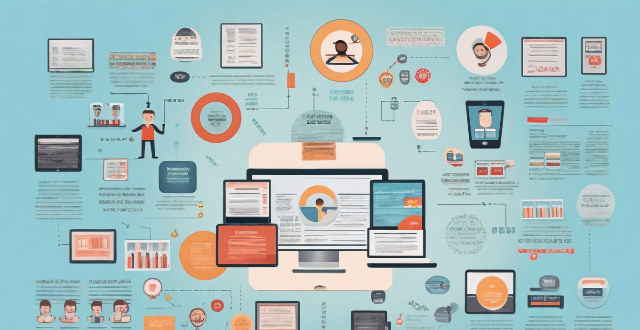
How does social media influence consumer behavior ?
Social media has transformed consumer behavior by increasing brand awareness, influencing purchasing habits, and changing perceptions of brands. It enables consumers to compare products, share feedback, and engage with companies directly. Social media also plays a crucial role in product development by providing insights into consumer needs and preferences. Companies can foster customer loyalty through engagement and exclusive deals on these platforms. The rise of social commerce allows for direct purchases within apps and live streaming sales events. Personalization and targeted marketing, including influencer collaborations, further impact consumer choices. Overall, social media's influence on consumer behavior is significant and continues to evolve with technological advancements.

How do economic recessions and downturns affect consumer spending on sports-related activities and products ?
Economic recessions significantly impact consumer spending on sports-related activities and products, affecting various aspects of the industry. Reduced disposable income leads to budget cuts and prioritization of basic needs over leisure activities. Changes in consumer behavior include seeking value-oriented options and DIY approaches to sports participation. Decreased ticket sales, cancellations/rescheduling of events, reduced sales of sports goods, and bargain hunting are common during economic downturns. Gym memberships may be canceled in favor of free or lower-cost alternatives, and investment in fitness technology could suffer. Fewer trips for sports tourism and a rise in localized activities are also likely. Sponsorships and advertising revenue may decrease, leading to job losses and wage stagnation across the sports industry. Long-term effects include recovery time and shifting habits formed during recessions. As economies recover, the sports industry must adapt to these changes and find innovative ways to attract consumers back to their venues.

Can sports sponsorship influence consumer purchasing behavior ?
Sports sponsorship is a marketing strategy that aims to increase brand awareness and positively influence consumer attitudes towards the brand. It works by providing increased exposure, building an emotional connection with consumers, enhancing the brand's image, and differentiating from competitors. The impact on consumer purchasing behavior can be direct or indirect, including immediate sales boosts, product trials, brand loyalty, and word of mouth recommendations. Measuring the impact involves analyzing sales data and tracking brand metrics. Success stories like Nike and Michael Jordan and Coca-Cola and Olympic Games demonstrate the potential of sports sponsorship. However, challenges and pitfalls exist, such as misaligned partnerships and overshadowing controversies. In conclusion, sports sponsorship can significantly influence consumer purchasing behavior when executed strategically and appropriately.
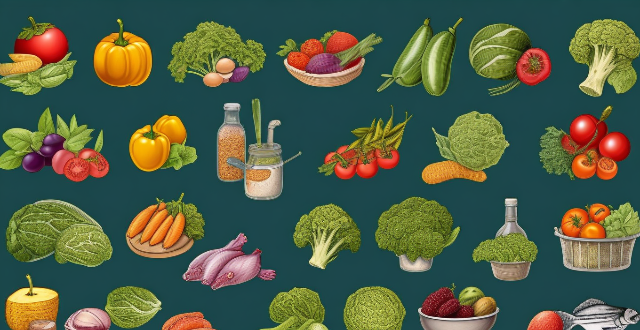
What is the significance of personal hygiene in food handling ?
Personal hygiene is crucial for food safety, public health protection, and maintaining quality in the food industry. It prevents cross-contamination, reduces disease transmission, and enhances food quality. Adherence to personal hygiene standards impacts regulatory compliance, consumer trust, and economic implications within the food industry.

How can small food businesses ensure they are compliant with food safety regulations ?
The text provides a comprehensive guide on how small food businesses can ensure compliance with food safety regulations. It emphasizes the importance of compliance in protecting consumer health, avoiding legal consequences, and enhancing brand reputation. The steps for ensuring compliance include understanding the regulations, training staff, implementing GMP, using quality ingredients, monitoring and testing, and having a plan for non-compliance. Following these steps can help small food businesses meet legal requirements and assure customers of the highest standards in food safety, ultimately leading to customer loyalty and a strong brand reputation.

What is the Consumer Confidence Index and how does it impact the economy ?
The Consumer Confidence Index (CCI) is a measure of consumer sentiment about the economy. It impacts the economy by serving as an indicator of economic health, influencing spending habits, affecting policy decisions, guiding business strategies, and causing market reactions. Overall, the CCI helps stakeholders make informed decisions based on consumer confidence levels.

How are food safety regulations enforced by governments ?
Governments around the world enforce food safety regulations through various methods, including legislation and policy development, inspection and compliance checks, licensing and certification, education and training, penalties and enforcement actions, public communication, and international cooperation. These efforts aim to protect consumers from harmful substances and contaminants in food products while promoting fair trade practices among producers and retailers.

What is the impact of sports marketing on consumer behavior ?
Sports marketing is a powerful tool that can significantly influence consumer behavior by increasing brand awareness, creating emotional connections with consumers, targeting specific demographics effectively, influencing purchase decisions, and engaging with consumers through social media platforms. This multifaceted impact can lead to increased sales, customer loyalty, and business growth for companies that leverage the power of sports marketing effectively.

How does sports culture influence fashion trends and consumer behavior ?
The intersection of sports culture and fashion trends is a dynamic relationship that significantly influences consumer behavior. As lifestyles become more active and health-conscious, the impact of sports culture on fashion choices extends beyond athleticwear to high fashion and streetwear. Athleisure, collaborations between sports and luxury brands, and the influence of sports icons have redefined what's considered stylish and desirable. Consumers increasingly prioritize comfort, functionality, and sustainability in their clothing choices, reflecting a shift towards durable, high-quality sports apparel over disposable fast fashion items. The rise of fitness influencers on social media platforms further drives this trend, shaping public perception of workout gear. Overall, the sports-fashion nexus is expected to continue growing, reflecting societal values of health and wellness.

What steps can consumers take to maintain food safety at home ?
Consumers can maintain food safety at home by following four main steps: proper handling, safe preparation, safe storage, and safe consumption of food. They should wash their hands before handling food, separate raw and cooked foods, clean utensils and work surfaces, cook food thoroughly, refrigerate promptly, store foods at the right temperature, reheat leftovers thoroughly, and avoid cross-contamination. By consistently practicing these steps, consumers can reduce the risk of foodborne illnesses and stay healthy.

How do climate-related CSR efforts affect a company's reputation and consumer perception ?
The text discusses the impact of climate-related corporate social responsibility (CSR) efforts on company reputation and consumer perception. It emphasizes that CSR has become essential for modern businesses, especially in terms of environmental responsibility. The importance of reputation and perception is highlighted, with brand image, investor confidence, stakeholder engagement, consumer loyalty, market differentiation, and risk mitigation being key factors. The article then explores the positive effects of climate-related CSR efforts on reputation and perception. These include public recognition, industry leadership, alignment with values, a trustworthy brand image, social responsibility, and innovative approaches. However, potential challenges such as greenwashing accusations, unmet expectations, negative scrutiny, skepticism, cost pass-through concerns, and inconsistency issues can also arise. In conclusion, the article stresses the significance of climate-related CSR efforts in shaping a company's reputation and consumer perception. To maximize benefits and minimize risks, companies must ensure their climate-related CSR strategies are genuine, transparent, and consistent with their overall business operations.

How can businesses adapt to changing climate conditions and still meet consumer demands ?
Businesses face the challenge of adapting to climate change while meeting consumer demands. Key strategies include embracing sustainable practices, innovating products and services, enhancing resilience, engaging stakeholders, and continuous learning and adaptation. By implementing these strategies, businesses can differentiate themselves as responsible corporate citizens while ensuring they continue to meet consumer demands.

What role does education play in shaping consumer behavior towards environmentally sustainable practices ?
Education plays a crucial role in shaping consumer behavior towards environmentally sustainable practices. It provides consumers with the necessary knowledge to understand complex issues related to environmental sustainability, develops essential skills for engaging in sustainable practices, changes attitudes towards the environment, and improves decision-making processes. By increasing awareness, developing skills, changing attitudes, and improving decision-making processes, education lays the groundwork for a more sustainable future. As individuals become more knowledgeable and committed to environmental stewardship, they will naturally incorporate sustainable practices into their daily lives, ultimately contributing to a healthier planet for all.

What are the biggest trends in consumer behavior during the Double 11 Shopping Carnival ?
The Double 11 Shopping Carnival, also known as Singles' Day, showcases the latest trends in consumer behavior. Key trends include: 1. **Rise of Mobile Shopping** with increased usage, mobile payments, and social media influence. 2. **Personalization and Customization** through data-driven recommendations, customized products, and interactive experiences. 3. **Omnichannel Retailing** providing integrated experiences, using stores as showrooms, and advanced inventory management. 4. **Sustainable and Eco-friendly Shopping** with a focus on green products, reduced packaging, and promoting the circular economy. 5. **Live Streaming and Influencer Marketing** leveraging live commerce, influencer partnerships, and interactive features. 6. **Data-Driven Decision Making** among consumers using price intelligence, review analysis, and predictive analytics. These trends highlight the impact of technology and changing values on consumer behavior during one of the world's largest shopping events.

How has technology improved food safety monitoring and compliance ?
This article discusses how technology has played a crucial role in enhancing food safety measures. It covers traceability systems, sensor technology, data analytics, automation and machine learning, and blockchain technology. Traceability systems allow for the tracking of products from farm to table using barcodes, QR codes, and RFID tags. Sensors monitor various parameters that impact food safety, such as temperature, humidity, and chemical composition. Data analytics tools process vast amounts of collected data to identify patterns, trends, and potential risks. Automated systems reduce human error and increase efficiency in food processing plants, while machine learning algorithms enhance decision-making processes based on learned behaviors from past data. Blockchain offers a decentralized way to record transactions securely and transparently when applied to food supply chains. By leveraging these technological advancements, we can work towards a future where food safety concerns are minimized, benefiting both consumers and industry stakeholders alike.
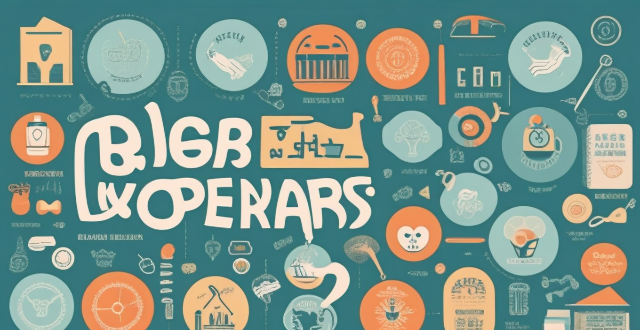
How do climate change perceptions vary among different consumer demographics, and what does this mean for marketing strategies ?
Climate change perceptions vary among different consumer demographics, including age, gender, income level, education level, and geographic location. Younger consumers, women, higher-income consumers, highly educated consumers, and urban consumers tend to be more concerned about climate change and prioritize sustainability in their purchasing decisions. Marketing strategies should be tailored to specific demographics, emphasizing eco-friendly practices, environmental benefits, luxury products, detailed information, and community impact. Understanding these perceptions is crucial for developing effective marketing strategies that connect with the target audience and drive sales.

How important is composition in food photography ?
Composition is essential in food photography for creating visually appealing images. Techniques such as focusing on the subject, using negative space, incorporating leading lines, following the rule of thirds, and experimenting with color and contrast can enhance the visual appeal of food photographs.

What is the significance of traceability in the food supply chain for food safety ?
Traceability in the food supply chain is crucial for food safety, enhancing transparency, facilitating recalls, improving quality control, supporting regulatory compliance, enabling better risk management, and promoting sustainable practices.

What are the key principles of food safety ?
The text outlines the key principles of food safety, which include cleanliness, avoiding cross-contamination, thorough cooking, proper storage, and using safe water and ingredients. By following these guidelines, individuals can reduce the risk of foodborne illnesses and ensure that their meals are safe for consumption.

Can eating organic food prevent diseases ?
Eating organic food may offer some potential benefits for disease prevention, such as reduced exposure to pesticides and chemicals, higher antioxidant levels, and better nutrient content. However, the overall evidence supporting its ability to prevent diseases is limited, and other factors influencing disease risk should also be considered when making dietary choices. It is important to prioritize a balanced and varied diet rich in fruits, vegetables, whole grains, lean proteins, and healthy fats while minimizing intake of processed foods and sugary beverages.
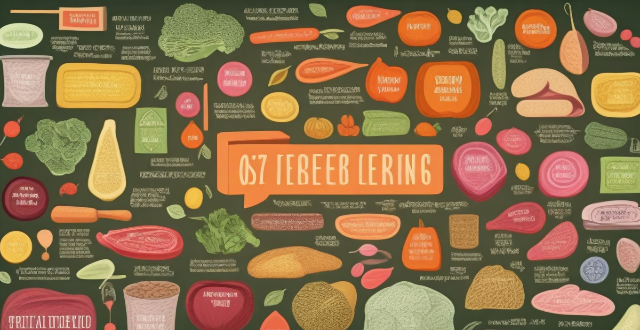
How does food labeling contribute to food safety ?
Food labeling is crucial for food safety as it provides consumers with essential information. It includes ingredient lists, nutritional information, expiration dates, manufacturing details, storage instructions, certification marks, allergy warnings, country of origin, precautionary statements, and environmental impact information. Proper labeling practices help identify ingredients, understand nutritional values, recognize potential risks, and make informed decisions about food consumption.
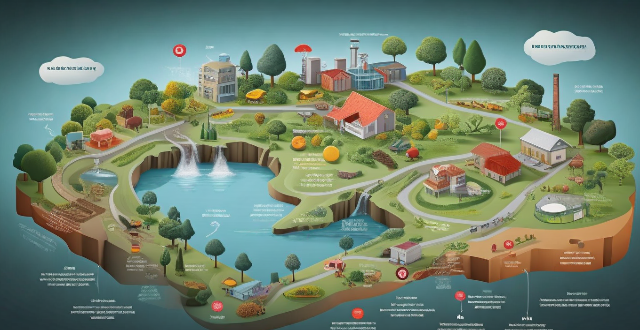
How does climate change affect agriculture and food security ?
Climate change significantly affects agriculture and food security by increasing extreme weather events, altering crop yields and quality, impacting livestock, and raising concerns about food access, affordability, and biodiversity loss. Adaptation and mitigation strategies such as sustainable farming practices, water management, genetic research, and policy initiatives are essential to build a resilient food system.